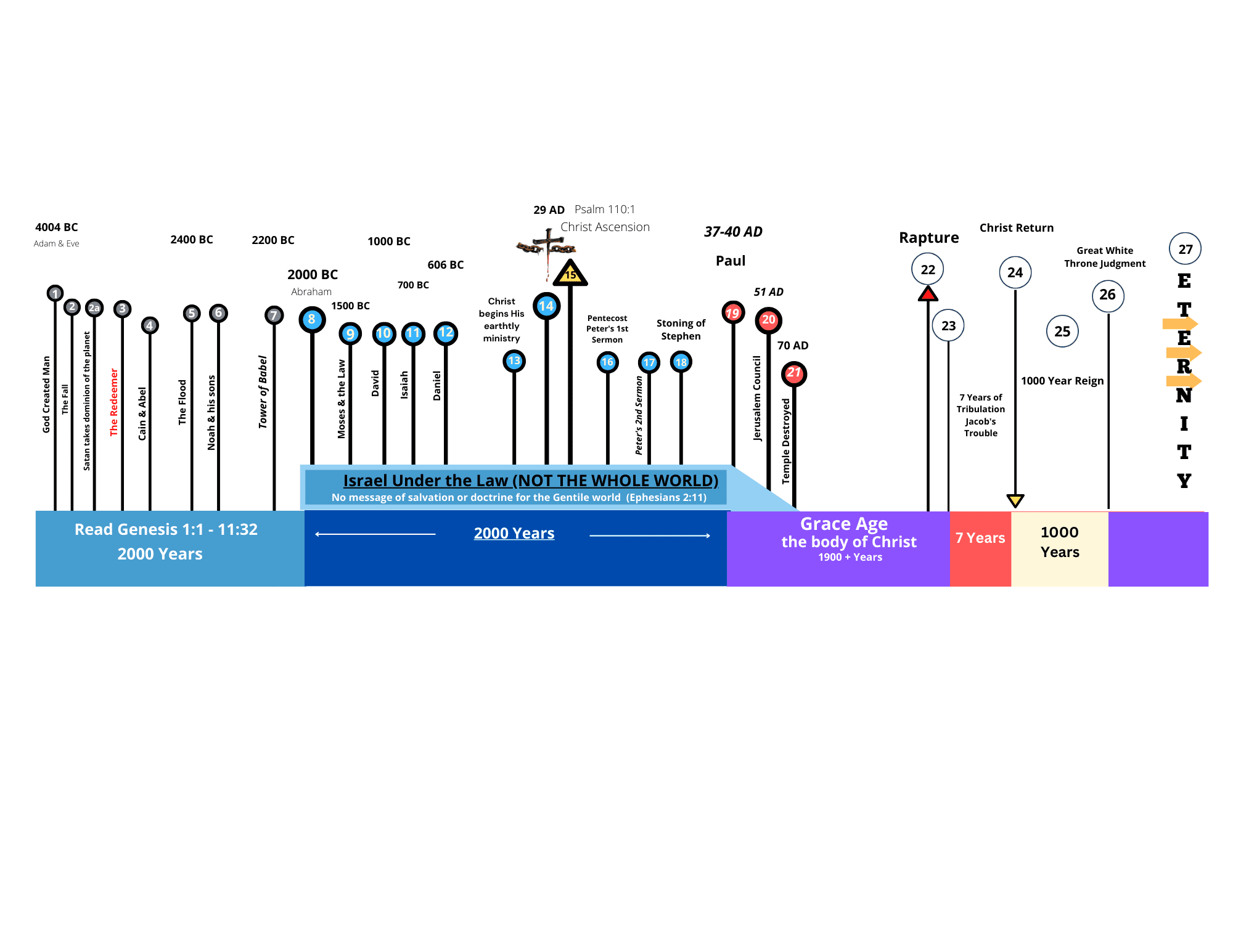Introduction
Understanding the context of Luke Chapter One is vital. Rather than rushing ahead to what was revealed to the apostle Paul, a common mistake in most of Christendom, it’s essential to grasp the Bible’s progressive revelation. Properly dividing the Word of Truth reveals a clear understanding, making the Bible both comprehensible and engaging. Attempting to force Paul’s revelations into the four gospels and early Acts causes confusion and division. By approaching the Scriptures with discernment and respecting their chronological unfolding, the richness of God’s message becomes apparent. Mixing God’s Word to fit a particular theology or denominational tradition can hinder the true unity within the body of Christ.
Luke initiates his gospel, breaking the 400 years of silence that followed Malachi’s last words. He picks up precisely where Malachi left off, emphasizing the continuity of Old Testament promises made to Israel, starting with Abraham. The closing verses of the Old Testament anticipate the arrival of someone to pave the way for the Lord. In continuity with this expectation, Luke opens with the angel Gabriel announcing to Zacharias, an elderly priest, that he and his wife will have a son. This son, in the spirit of Elijah the prophet, will turn the hearts of fathers to their children and prepare the way for the Lord. Luke establishes a seamless connection, presenting this son as the fulfillment of Malachi’s prophecy.
Malachi’s prophecy, like all Old Testament prophecies, is specifically addressed to and intended for the nation of Israel. This pattern remains consistent in Luke and the other gospels, with the focus remaining on Israel rather than the Gentile world.
Beloved, rest assured that God had the Gentile world in His divine plan from the very beginning. This was all part of God’s sovereign design, established before the beginning of time as we know it. God, in His sovereignty, knew that Israel would reject Him in unbelief, and He also foresaw the need to send His only Son, Jesus Christ, not only for the redemption of His chosen people but to reconcile the whole world to Himself (2 Corinthians 5:19). However, it’s crucial to approach the study of Luke and the four gospels by recognizing that Christ initially came to His people, the people of Israel. It’s essential not to impose Gentiles or the body of Christ into a timeframe or scriptural context where they do not belong.
Luke 1: The Old Testament Continued
The misconception that Luke or Matthew Chapter 1 marks the beginning of Christianity is incorrect. Instead, it is a continuation of God’s dealings with Israel based on Old Testament covenants and promises.
Christ’s imminent arrival, as announced by the angel in Luke 1, does not initially convey the message of faith alone in His death on the cross, His burial, and His resurrection as the means for salvation. It primarily signifies the fulfillment of God’s promise to the Nation of Israel, which is Israel’s King and a glorious kingdom. (Romans 15:8).
The Four Gospels, within this (literal-in-time) context, are predominantly Jewish. The nation of Israel is operating under the law, with the Temple functioning, sacrifices offered, and maintaining all 613 laws under Judaism. It is only later, through Paul, and not before, that the understanding of not being under the law is revealed and salvation to the Gentile world is offered. The Bible unfolds progressively, and Luke Chapter 1 serves as an introduction to Christ’s first Advent to the Nation of Israel as the promised King. Pastors and theologians commit great violence to God’s word when they force the body of Christ into Luke 1 or any of the four gospels. Yes, the four gospels are building blocks (Romans 15:4), but to teach Luke 1 as doctrine and salvation for the body of Christ is erroneous.
Luke 1:30–33 states, “And the angel said unto her, `Fear not, Mary, for thou hast found favour with God. And, behold, thou shall conceive in thy womb, and bring forth a son, and shalt call his name JESUS. He shall be great, and shall be called the Son of the Highest: and the Lord God shall give unto him the throne of his father David.’” This stems directly from Old Testament promises. Verses 67–74 of Luke 1 emphasize Zacharias’ prophetic blessing, centered on the Lord God of Israel (not the Gentiles) coming to Israel as promised throughout the Old Testament. To crush Israel’s enemies: Who were Israel’s enemies? The Gentiles), to be their King and to set up a glorious kingdom. With their Messiah, Jesus, ruling as King of kings from David’s throne in Jerusalem, again, Luke 1, and the entire book of Luke is a continuation of the Old Testament narrative, fulfilling promises made to the fathers (Abraham, Isaac, and Jacob).
Takeaway
As we study the New Testament, remember that the Lord’s first advent was to the lost sheep of the house of Israel (Matthew 10:5–6; Matthew 15:24), and Jesus was a minister of the circumcision to confirm promises made to the fathers (Romans 15:8). Acts 10 underscores the Jewish adherence to the law and Peter’s initial reluctance to embrace Gentiles. Lastly, in Acts 11:19, which is approximately 12 years after Pentecost, just after the stoning of Stephen, the Jewish believers (Jews who believed that Jesus was the Christ “Messiah”) are scattered because of Paul’s persecution. All that is being preached is the Old Testament (that Jesus was the Christ), AND TO WHO? JEWS ONLY.
Beloved, rest assured that God had the Gentile world in His divine plan from the very beginning. This was all part of God’s sovereign design, established before the beginning of time as we know it. God, in His sovereignty, knew that Israel would reject Him in unbelief, and He also foresaw the need to send His only Son, Jesus Christ, not only for the redemption of His chosen people but for the reconciliation of the entire world to Himself. However, it’s crucial to approach the study of Luke and the four gospels by recognizing that Christ initially came to His own people, the nation of Israel. It’s essential not to impose Gentiles or the body of Christ into a timeframe or scriptural context where they do not belong.
The progressive revelation unfolds, paving the way for God’s turning to the Gentiles through the Apostle Paul.
‘For whatever things were written before were written for our learning, that we through the patience and comfort of the Scriptures might have hope. ‘
Romans 15:4


0 Comments